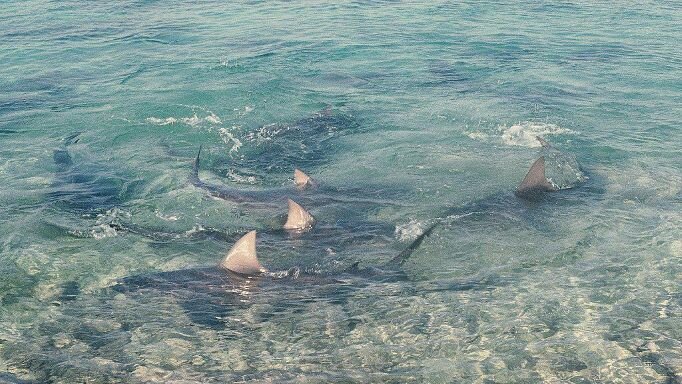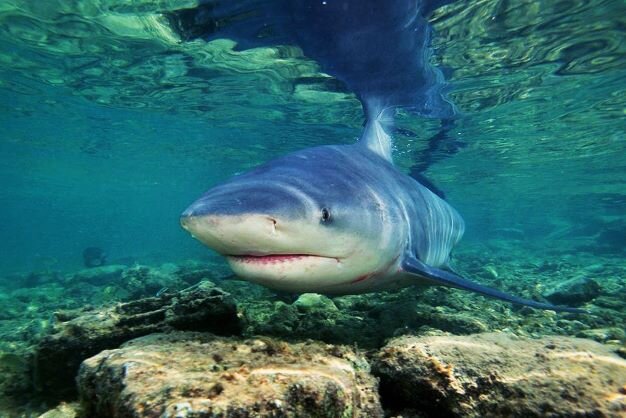Shallow Waters
Are you 100% safe from shark bite in shallow water? While staying within your depth gives a sense of control and security, that doesn’t mean it makes an encounter with a shark a total impossibility. As seen in Episode 3 of Shark Files, a number of attacks in Middle Harbor, Sydney, have taken place in waist-high water.
Bull sharks were involved in all of these incidents and they are, of all shark species, the one most dangerous to swimmers in very shallow waters. Typically smaller than tiger or great white sharks and much bolder, these features may allow bulls to maneuver in such low water depths with less fear of beaching themselves.
A beached white shark in Mexico, 2017
Some notable incidents illustrate this behavior in bull sharks.
Most recently in 2015 in North Carolina, a 12 year old and a 16 year old sustained severe, but fortunately non-fatal, injuries in ‘waist deep water’. The older of the two had just waded back in to rinse off sand at the time. Incredibly both incidents occurred on Oak Island and less than an hour apart.
In areas where reefs, sandbars or sudden drop offs occur, shark bites in the shallows are more common. One such area is Recife in Brazil. In 2004, at Boa Viagem beach, a lifeguard, Edmir Nicacio Lopes, rescued a woman he had seen moments before wading in 3 feet, or less than a meter, of water, when a large bull shark rushed inshore and bit her badly from behind. Edmir was disbelieving in the aftermath, having been told in his training not to worry about beachgoers in such shallow water. The next day on the same beach, in less than 1.5m of water, a man lost part of an arm and a leg. Shark experts suggested a lack of food sources at the time may have made the bull sharks more desperate.
Juvenile bull sharks near shore (source: Quartz)
Most unbelievable of all was an incident that occurred in 1972 in Lake Kosi Bay National Park, South Africa. After dusk, on a wide sandy shelf, Janie Pelser was relaxing with a friend, sitting on the sand and kicking her legs, in water two to three feet deep, when suddenly she was grabbed on the foot. Luckily, her injuries were not severe. The species was determined to be a Zambezi shark, or as it’s commonly known outside of Africa- the bull shark.
Avoiding murky or polluted water, dawn and dusk, or areas where fish and other prey gather near shore, can reduce the risk in regions where bull sharks live and hunt.
A Bull Shark cruising in shallow waters (photo: oddviser.com)



